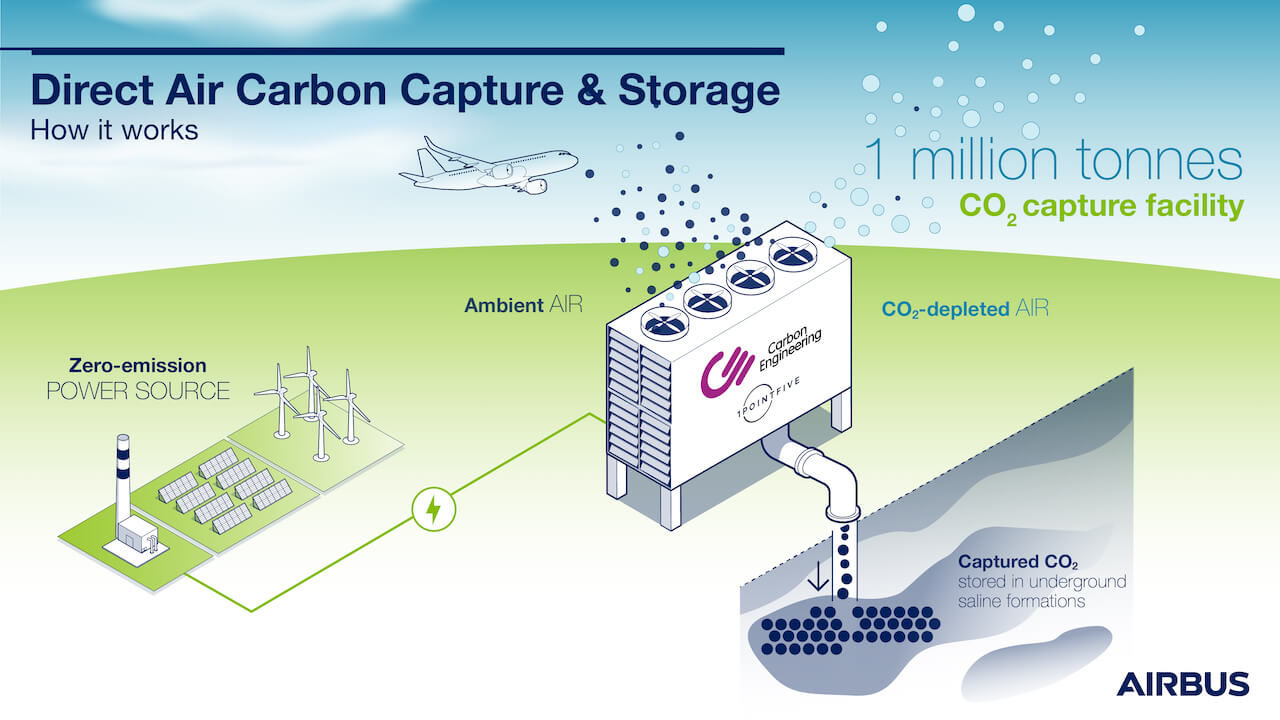Airbus and a number of major airlines have signed Letters of Intent (LOI) to explore solutions for carbon removal in aviation.
The LOI took place at the Farnborough Airshow. The airlines who joined are: Air Canada (ADH2), Air France-KLM, easyJet, International Airlines Group (IAG), LATAM Airlines Group, Lufthansa Group and Virgin Atlantic.
The LOI involves studying the method of Direct Air Carbon Capture and Storage (DACCS), which removes human-induced CO2 directly from the air. Airbus believes that this could help multiple industries meet their net-zero carbon emissions targets.
It’s the emerging technology that can capture CO2 directly from the air – and the aviation industry is now taking notice to help us get closer to #netzero by 2050.
— Airbus (@Airbus) July 18, 2022
Find out more about how it works https://t.co/ZG5aXduURJ @1PointFiveCCUS #DACCS #FIA2022 pic.twitter.com/u62ZTGrwlp
Airbus explains that the technology is simple: a large fan draws air into an air contactor, which is modeled on industrial cooling towers. The air passes over thin plastic surfaces with a non-toxic potassium hydroxide solution flowing over them to trap the CO2 molecules as a carbonate salt.
The carbonate salt is separated from the solution using a pellet reactor. The carbon pellets are then heated in a calciner to release the CO2 as pure gas.
The processed pellets are then hydrated and recycled for use in the original capture solution.
The captured pure CO2 can then either be stored underground or reused for the production of fuel.
While the technology is still currently in its infancy, Airbus believes that by the year 2030, it will be used widely worldwide.
As part of the LOI agreement, the airlines have committed to engage in negotiations on the possible pre-purchase of verified and durable carbon removal credits starting in 2025 through to 2028.
“We are already seeing strong interest from airlines to explore affordable and scalable carbon removals,” Julie Kitcher, executive vice president communications and corporate affairs for Airbus said in a statement dated July 18, 2022.
“These first letters of intent mark a concrete step towards the use of this promising technology for both Airbus’ own decarbonisation plan and the aviation sector’s ambition to achieve net-zero carbon emissions by 2050,” Kitcher added.


